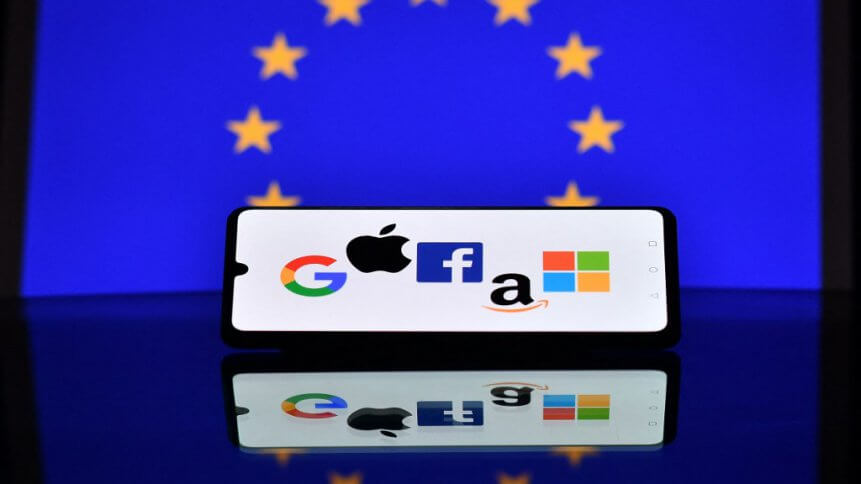Antitrust, data privacy – Amazon, Facebook continue to draw regulator ire in Europe

Technology giants Amazon and Facebook are once again attracting renewed scrutiny from lawmakers on the continent. Online retailer Amazon will be facing anti-monopoly queries, while Facebook has to deal with yet another probe into how its recent acquisition might permit the misuse of users’ personal data – hot button topics that keep drawing the attention of European legislators.
Both Amazon and Facebook are no strangers to regulatory oversight. This antitrust investigation fits into a bigger picture of tech giants criticized for their anti-competition practices: favoring their own products, monopolizing the market, and choking off competition through the acquisition of startups before they have a chance to take off, creating an imbalance in the tech-verse.
And evolving data laws are being examined in a majority of countries with an active digital economy. Legislation like the EU’s GDPR privacy and security laws (among international equivalents) which although drafted in the European Union, are actually imposed unto every organization, so long as they target or collect data from people residing in the EU. Experts expect far-reaching data privacy legislation like the GDPR and the California Consumer Privacy Act of 2018 (CCPA) to become more pronounced in more global regions this year, responding to an ever-greater drain on citizen digital data from more sources than ever.
The European Commission has launched an investigation into Facebook’s buyout of a US startup, over concerns that the social media giant could misuse personal data. Last year Facebook announced its purchase of Kustomer, a five-year-old company that specialises in helping businesses interact with customers online.
The commission, which runs the EU’s powerful antitrust authority, said 10 national authorities requested an investigation, with Austria making the original demand. The deal is below the EU’s usual financial threshold for merger investigations, but Europeans have become extra vigilant over Big Tech’s appetite for startups and how it could harm competition.
After coming under similar scrutiny for its purchase of wearables company Fitbit, Google was forced to make assurances on data use in order to win the green light from Brussels. In a short statement on May 12, the EU said Facebook will now have to formally notify the deal to the EU and that the firm “cannot implement the transaction before notifying and obtaining clearance from the Commission”.
The commission said it will look at whether the transaction will have a negative effect on the market for customer management software as well as online display advertising services. In response, Facebook said: “We look forward to demonstrating to regulators that Facebook and Kustomer would offer more choices and better services through this pro-competitive deal.”
The acquisition of Kustomer raised red flags, coming as Facebook continues a major push to link e-commerce services to its platforms, particularly its WhatsApp and Messenger messaging services. Of particular concern is Kustomer’s popular “chatbot” technology, a customer dialogue channel used by banks, medical offices, and airlines where users pump in sensitive information.
Critics, including the Council for Civil Liberties in Ireland, where Facebook’s EU headquarters are based, want assurances on how this data will be handled by Facebook. The subject is a pressing one, with a German regulator last week slapping a three-month ban on Facebook collecting user data from WhatsApp accounts, part of the company’s effort to increase its effectiveness for businesses, with Facebook saying that more than 175 million people contact businesses via WhatsApp daily, and the number is growing.
Germany’s lawmakers are not just after Facebook, with its competition authority opening an inquiry into Amazon over potential “anti-competitive practices”, using a new law giving regulators more power to rein in big tech companies. Federal Cartel Office head Andreas Mundt said his office is examining whether Amazon has “an almost unchallengeable position of economic power” and whether it “operates across various markets”.
If so, it could be deemed of “paramount significance”, said Mundt, adding that the regulator could “take early action against and prohibit possible anti-competitive practices by Amazon”.
“This could apply to Amazon with its online marketplaces and many other, above all digital offers,” he added. In a statement to AFP, an Amazon spokesperson said the company “cannot comment on ongoing proceedings and will fully cooperate with the FCO”. Under the amendment to Germany’s competition law passed in January, the watchdog said it now has more power to “intervene earlier and more effectively” against big tech companies, rather than simply punishing them for abuses of their dominant market position.
The German reform coincided with new EU draft legislation unveiled in December aimed at curbing the power of the internet behemoths that could shake up the way Silicon Valley can operate in the 27-nation bloc. The push to tighten legislation comes as big tech companies are facing increasing scrutiny around the globe, including in the United States, where Google and Facebook are facing antitrust suits.










